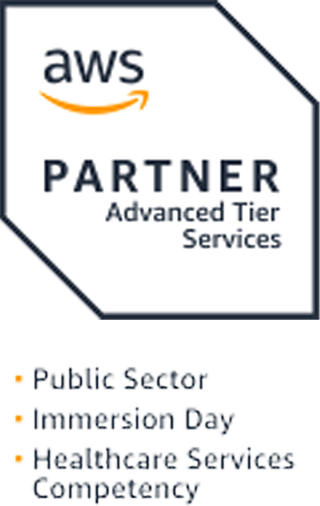The Keystone cloud is designed specifically for the needs and workflow of health networks, hospitals and medical practices to ensure they remain HIPAA and HITECH compliant. Keystone handles network design and architecture for its cloud and managed hosting customers. This includes security design and management for the network, proper firewalls, VPN concentrators, load balancers, SSL offloading, all deployed and managed by Keystone. Backups of network device configurations, log management and archiving, patches and upgrades to network devices, and best practices from a team of certified network engineers are also included. The infrastructure is managed and maintained by Keystone and our security team completes an annual security and risk assessment. Through the Keystone cloud we keep legacy EMR systems relevant and useful.
Our HIPAA-compliant cloud services were specifically designed to meet the needs of the healthcare market. Our fully redundant cloud serves the computing, storage and security needs of health systems, hospitals, medical practices and senior living facilities working within the confines of the HIPAA and HITECH regulations. Our cloud utilizes a Citrix Architecture, which is an industry standard to provide secure access to their enterprise applications, without the time, stress or cost of maintaining their own infrastructure on-premise.
We have the unique ability to cover every cloud architecture, migration, and hosting need, including:
- Strong expertise with a variety of Amazon Web Services (AWS) technologies and workloads
- Focus on HIPAA-Compliant Cloud Services for Hosting (compliance, storage, security and versatility)
- Hybrid architectures
- Modern Data Architecture
- Networking, security and storage solutions
- Backup and DR solutions (RTO & RPO)
The cloud with Citrix XenDesktopTM allows companies to deliver virtual desktops securely to thousands of end users based on their unique identity, location, and security status. By centralizing applications and data in the cloud, we are able to enhance management and support, increase data security, and facilitate business continuity. Keystone offers two cloud environments.
Keystone’s cloud environment is provided through AWS and is a collection of remote computing services that together make up the largest and most flexible cloud computing platform in the world.
The AWS Partner Network (APN) is the global partner program for technology and consulting businesses who leverage Amazon Web Services to build solutions and services for customers. The APN helps companies build, market, and sell their AWS offerings by providing valuable business, technical, and marketing support. More than 90% of Fortune 100 companies and the majority of Fortune 500 companies utilize APN Partner solutions and services. We are an AWS Consulting Partner – Advanced Tier.
On-Premise to Cloud
Healthcare organizations are building their IT infrastructures to be more flexible and scalable to meet the growing data demand. With value-based incentives for data analytics and the increased number of connected medical devices constantly collecting data, organizations are challenged with storing clinical data in a way that is both HIPAA-compliant and easy for authorized users to access. Traditionally, healthcare organizations have shied away from cloud data storage in favor of on-premise options due to the control IT administrators have over physical data centers. Now, entities are more likely to implement cloud storage into their IT infrastructure due to the reduced maintenance costs and improved HIPAA-compliance.
Cloud data storage options offer a flexible and scalable environment at a lower cost than on-premise deployments, which is appealing to covered entities. Organizations exploring data analytics are expecting their storage requirements to steadily increase as the Internet of Things (IoT) and mobile devices collect data that needs to be stored. One of the biggest data storage challenges healthcare organizations face is how to maintain legacy systems while integrating new systems into the infrastructure. Many entities cannot afford to mass migrate data from one storage system to the other, which is why interoperability between different cloud vendors is necessary for a smooth transition.
Thanks to cloud-based platforms, backing up your organization’s critical data has never been easier. While there are many factors that must go into crafting the right DR plan, the two most important are the recovery time objective (RTO) and the recovery point objective (RPO). Cloud-based platforms allow you maximum flexibility and cost control in regard to RTO and RPO and allow healthcare organizations to determine by data type how best to retrieve and restore data.
